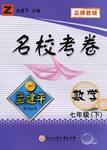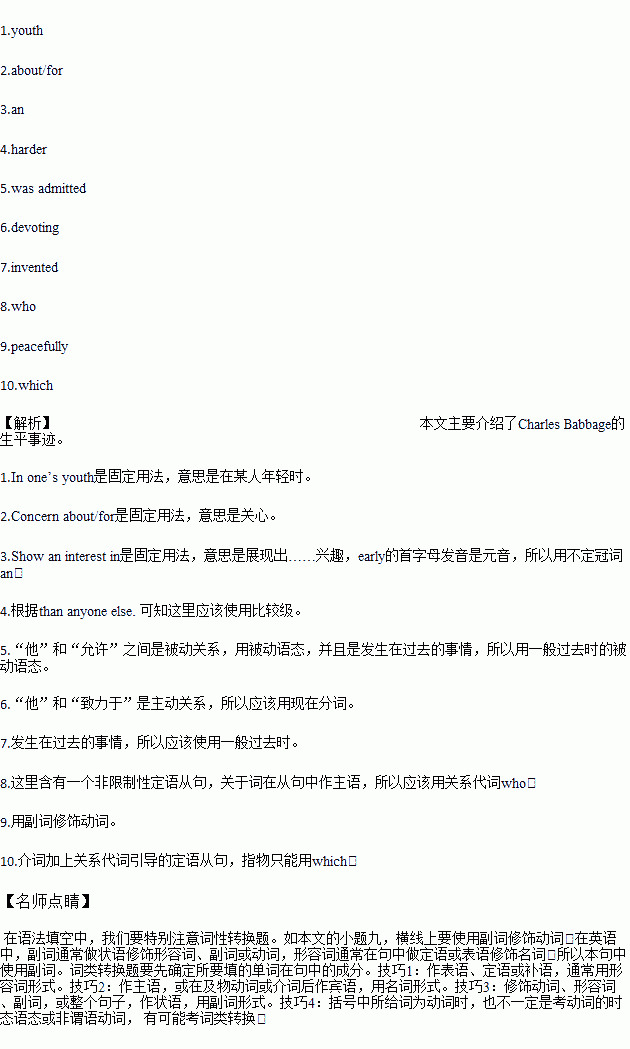题目内容
Charles Babbage was born in 1791 in Britain. He was in poor health in his1.(young) so he had to be educated at home. Concerned2.his health, his mother wan advised that he should not be taught too much. However, the boy showed 3.early interest in mathematics and worked4.(hard) at it than anyone else. Later he 5.(admit) into Cambridge University.
In 1827 he became a professor of mathematics. He worked selflessly, 6. (devote) a lot of his wealth and energy to computing machines. In 1834 he7.(invent) the Analytical Machine which is the prototype(原型)of a Computer. This was a great achievement but Charier Babbage never produced a real computer.
Finally in 1871 , Charles Babbage, 8.is remembered as the “ grandfather of computing ,”died 9.(peaceful). However, his principles are still those on 10. modern computers are based.
 孟建平名校考卷系列答案
孟建平名校考卷系列答案

